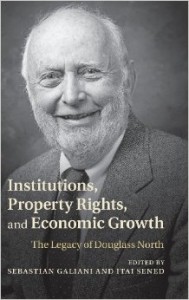 Douglass C. North, a Nobel laureate famed for his groundbreaking work on “new institutional economics,” died on November 23. He was 95.
Douglass C. North, a Nobel laureate famed for his groundbreaking work on “new institutional economics,” died on November 23. He was 95.
North – a professor, economist, philosopher, and economic historian – was the co-recipient (with Robert Fogel) of the 1993 Nobel Prize in Economic Sciences “for having renewed research in economic history by applying economic theory and quantitative methods in order to explain economic and institutional change.”
I highlighted North in an article I wrote for Outsource Magazine as part of my Academics of Outsourcing series where I challenge procurement and outsourcing professionals to heed the advice of scholars such as North.
In a 1991 paper in The Journal of Economic Perspectives, North argued that institutions—including business and commercial exchange—are social arrangements. The formal policies and informal behaviors organizations have in business exchanges help form the basis of our future business success (or decline!). His research established connections on how institutions and societies interact, and how those interactions can positively or negatively impact economics over time.
North’s work yields great insight into the power of building cultural norms that purposely create a trusting environment. After all, it’s difficult to build a highly cooperative business relationship when you don’t trust the other party. For commercial relationships to benefit the most, they need to consciously adopt formal and informal social norms of honesty, integrity, reciprocity, loyalty, equity and autonomy with the clear intention to build trust in business relationships.
North inspired our work into embedding a parties’ intentions that clearly define and engrain both social norms and behavioral expectations into formal contracts through what we refer to as a Statement of Intent.
Thank you for that essential insight, Professor.